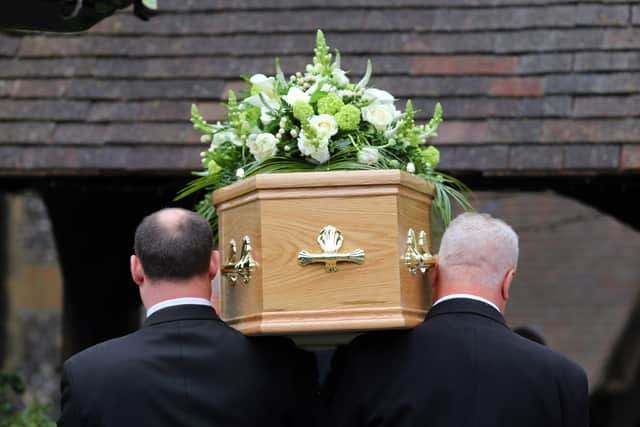Funeral restrictions through Covid will stay with society - Conor Matchett
I travelled to Northern Ireland last week for the funeral of my aunt who, after a long battle with motor neurone disease (MND), passed away last Saturday.
Her funeral was a celebration of her life and personality as much as a lament for her loss and a packed church of family and friends was joined by several members of the wider community who came out in force to give her a fitting send off.
Advertisement
Hide AdAdvertisement
Hide AdShe was, prior to being diagnosed with MND, someone who loved to host family and friends, and was gregarious and dynamic, lighting up any room with her energy and laughter.


The nature of illness, in that sense, felt exceptionally cruel.
It was fitting, therefore, that her funeral was the scene of a family reunion.
Covid-19 has robbed us of many liberties and joys, from pints down the pub to going on holiday abroad.
But there were few things harder to accept than the restrictions on family to celebrate the lives of those they have lost during the past 18 months.
I cannot fathom how hard it must be for those who could not mourn as they may have wanted and who may still be struggling with that grief.
That grief will permeate society for years, going unnoticed by most, but deeply affecting others.
My aunt’s funeral was the first time my family, which is, in typical Irish fashion, large and spread widely, had come together for any event in two years.
Advertisement
Hide AdAdvertisement
Hide AdThe last time the majority of us had been in one place at the same time was for my cousin’s wedding in 2019.
Despite the nature of the event, seeing everyone together was a long-awaited return to semi-normality.
Funerals can often lead to introspection on topics such as mortality, family, and health, but during the four days away I was struck by how lucky we were, as her family, to simply be there.
Sat in that church, I thought about those who lost fathers, mothers, daughters and sons without being able to say goodbye, and selfishly felt relief that we were not among them.
Our thoughts should be with those who were.
To help find a cure for MND and help those suffering with the disease, you can donate to the MND Association here.
A message from the Editor:
Thank you for reading this article. We're more reliant on your support than ever as the shift in consumer habits brought about by coronavirus impacts our advertisers.
If you haven't already, please consider supporting our trusted, fact-checked journalism by taking out a digital subscription.
Comments
Want to join the conversation? Please or to comment on this article.
